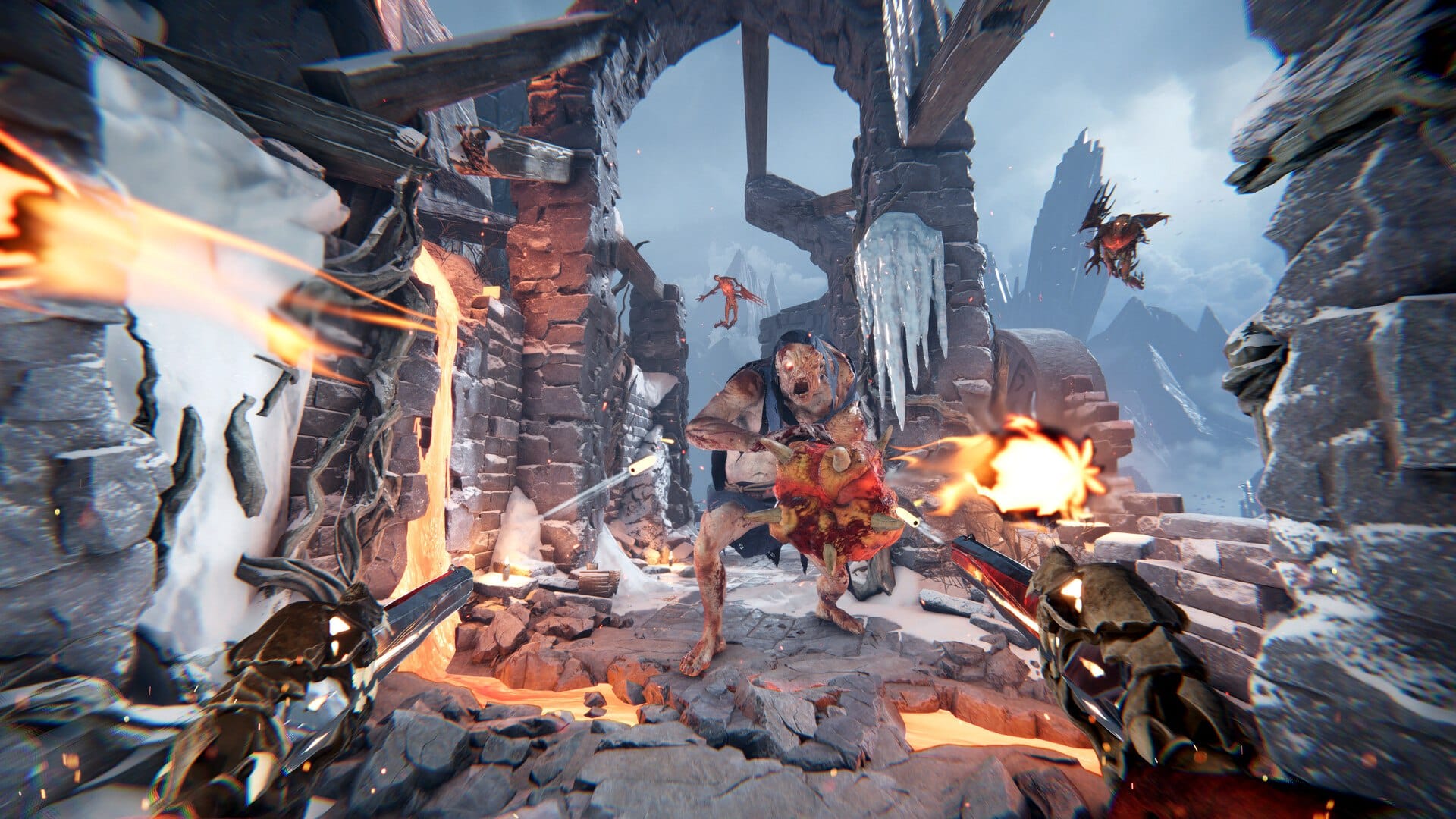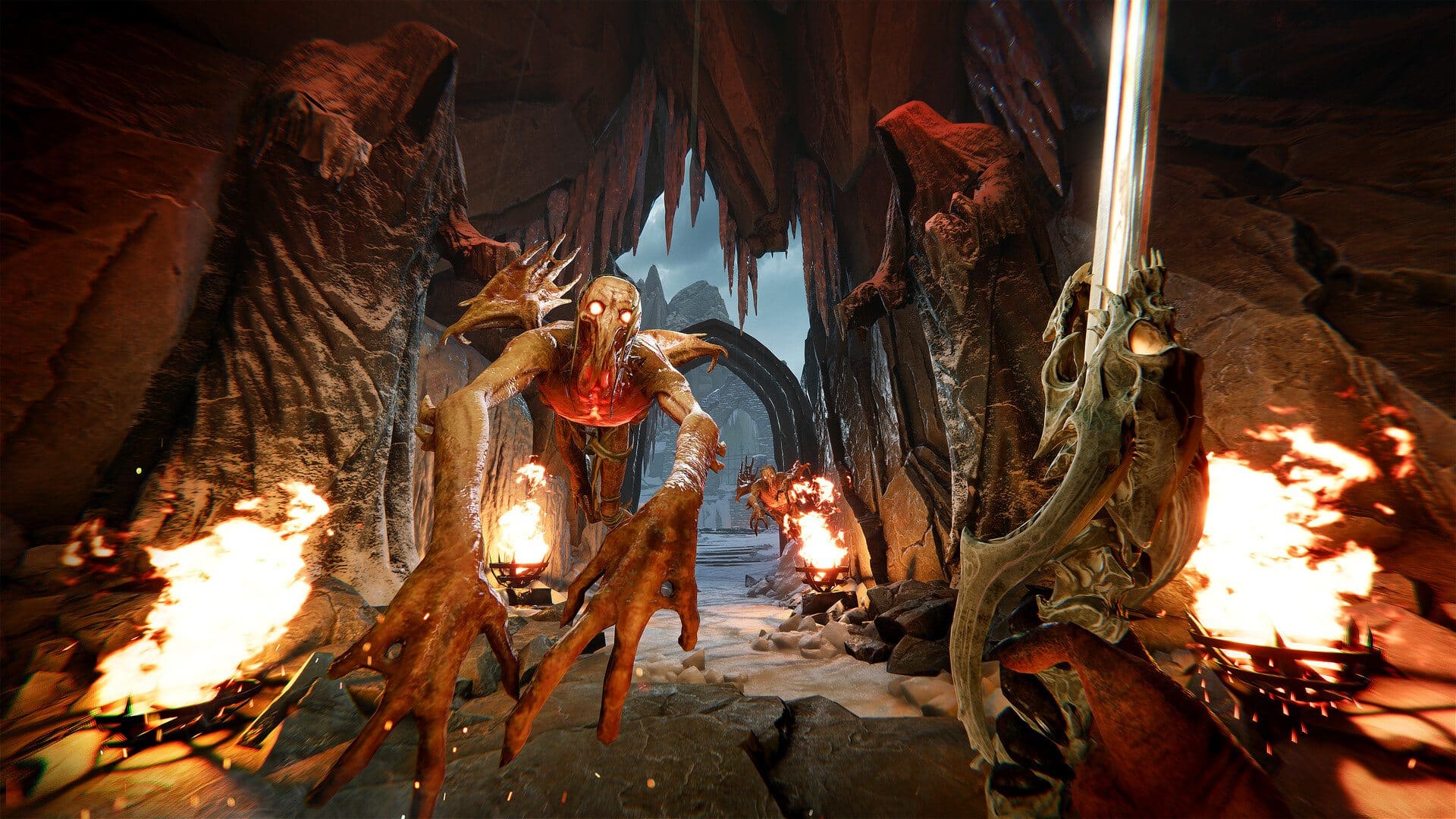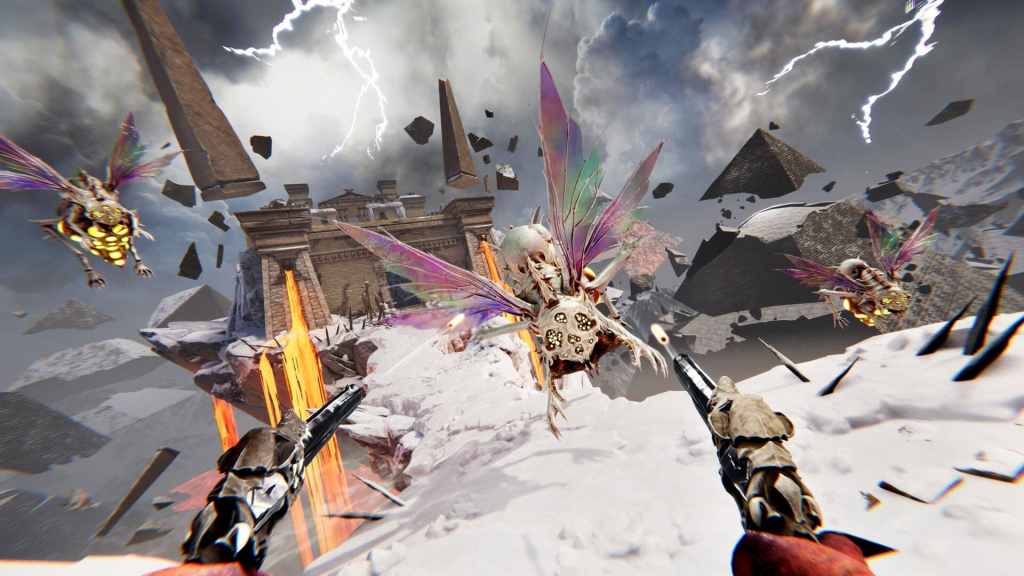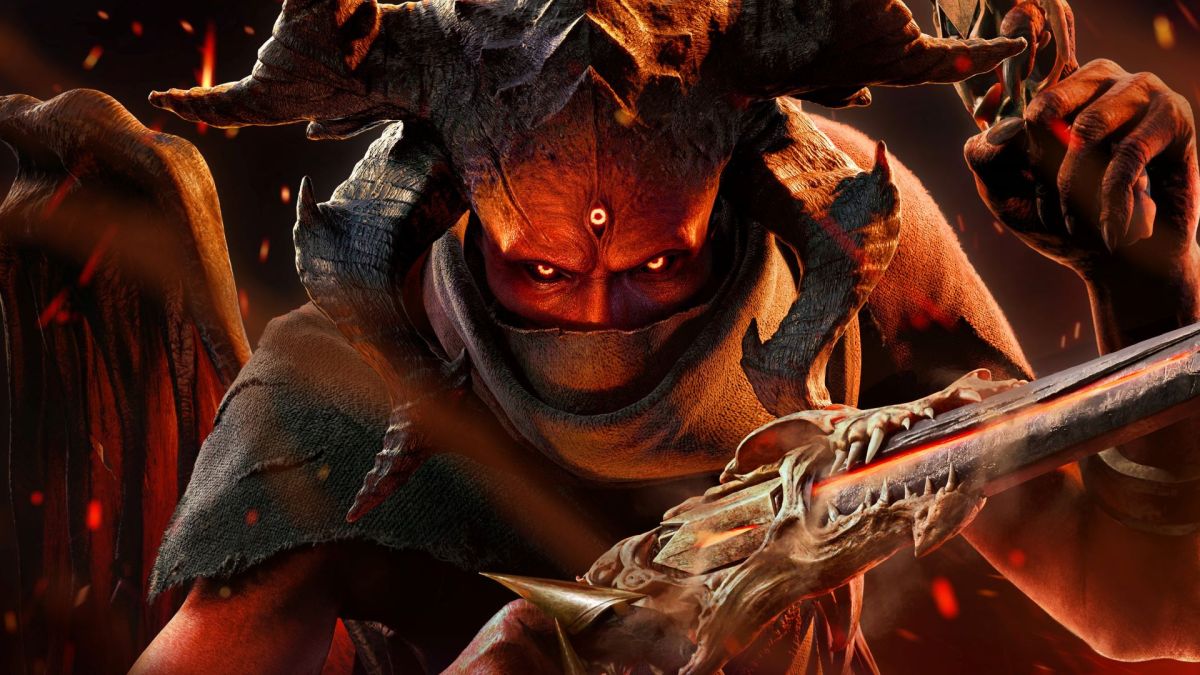Metal: Hellsinger is the debut release from Swedish studio The Outsiders. Released in September 2022, the rhythm and first-person shooter hybrid has been reminding players everywhere that video games and music go together like peanut butter and jam.
At first blush, Metal: Hellsinger looks pretty straightforward. Your objective is to slay your way from room to room until you meet the final boss of each stage. If you’re the kind of person who likes to compete for scores on a leaderboard, you can choose to take part in additional challenges that boost your rank, but otherwise, the journey is relatively straightforward.
Where it stands apart is its context, worldbuilding, and the nuance of its rhythm mechanics. Set in hell, you play as a part human, part demon called ‘The Unknown’, fighting your way out. The twist is that optimum performance requires you to strive for destroying your enemies to the beat of the music, which affords you higher damage, more devastating weapon effects, and higher score combos.
It’s not just your power that’s intensified by metronomic murdering, it’s the soundtrack itself. Brilliantly, as your score combo multiplies, various guitar tracks are layered on top of the raw beat, culminating in roaring vocals that complete the track. The efficacy of this mechanism is hard to describe – it needs to be experienced. Though a short game, its focus on virtuosity over mere completion means you’re incentivised to return for multiple runs, in the hope of inching closer to perfectly-executed musical slaughter.
David Goldfarb is co-founder of development studio The Outsiders and Metal: Hellsinger’s Creative Director. He was previously the Game Director on Payday 2, and Lead Designer on Battlefield 3 and Battlefield: Bad Company 2.
According to Goldfarb, Metal: Hellsinger wasn’t intended to be The Outsiders’ debut. The studio’s original game, Darkborn, was cancelled four years into development after the publisher, Take-Two, decided to part ways with the team. This left the Swedish outfit in dire straits, with only a few months of finances. Hellsinger – ironically – was something of a hail mary. It’s no wonder Goldfarb and his team are ‘still decompressing’ in the wake of its release, though following its reception has certainly ‘been rewarding’.

The idea for Metal: Hellsinger came in more peaceful times. As Goldfarb recalls, ‘I was playing [Grand Theft Auto] Vice City, driving along a beach listening to some eighties music. I remember feeling that the intersection of music and [playing games] felt really good.’
‘Then, when I was playing Doom in 2016, I was listening to Meshuggah, and – I think probably by accident – started to shoot on the beat. It felt like I was in flow state, and I thought, “This is cool!”’
No doubt his 2016 self would have said the same to the lineup of metal vocalists he and his team were able to eventually bring on board to the project. Icons such as Serj Tankian (System of a Down), Matt Heafy (Trivium), Mikael Stanne (Dark Tranquillity), Randy Blythe (Lamb of God), Alissa White-Gluz (Arch Enemy) and Tatiana Shmayluk (Jinjer) feature, reading like a who’s-who of the metal music genre.
‘That process was like a snowball’, says Goldfarb. ‘I had a list, but we didn’t think we’d actually get these people.’ Fate decided otherwise. The mother of one of the musical team knew Mikael Stanne’s girlfriend, and with this first piece of the puzzle in place, a world-class roster slowly came together around it.
‘I remember when we got Randy [Blythe] because I’m such a huge Lamb of God fan. I was like, “This is unbelievable!”’, Goldfarb recounts with a smile. ‘It was a whole crazy ride. None of us had any idea.’

The team were just as surprised when a demo released online found significant popularity. ‘I was against [making a demo] when it was first brought up. My experience with demos is that 98% of the time, they’re so much work and so little reward’, Goldfarb explains. ‘But marketing was like, “You really need to play the game to understand it”.’
Even post-launch, this has proven true. ‘I think our game is unique in that respect. I think you can show people the game forever and they will go, “It’s a Doom clone”. But when people sit down and play it, they’re like, “Okay, this is not at all what I thought it was”.’
Goldfarb’s broader view of the game is equally unexpected. ‘Darkborn was a really sad game for lots of reasons: the way it ended, and also [its inspiration], the Grendel story’, he muses. ‘Making that game was really important to me because I’ve always felt like the monster. So losing that… there was a lot of grief there.’

‘Metal was a way to find joy again in making stuff again,’ he explains. ‘It’s weird to say, but it’s a message of hope … It’s a message of rebellion.’
Given his experiences, Goldfarb has a message for aspiring game developers: ‘The only thing I would say is, don’t work for shitty people. Don’t work for people that don’t represent your interests – whether creative or otherwise.’
‘Everybody finds their own path. I don’t know exactly how I arrived. I’m just lucky and grateful I was able to make games that people liked – for the most part. I hope I get to continue doing that’, Goldfarb adds.
And for people who aren’t fans of metal or first-person shooters, Goldfarb urges them to, ‘grab the demo and play on the lowest difficulty’, urges Goldfarb. ‘I think it really is something you can play and enjoy, even if you’re none of those things.’
Metal: Hellsinger is available now on PC, Playstation 5, and Xbox Series X|S.





